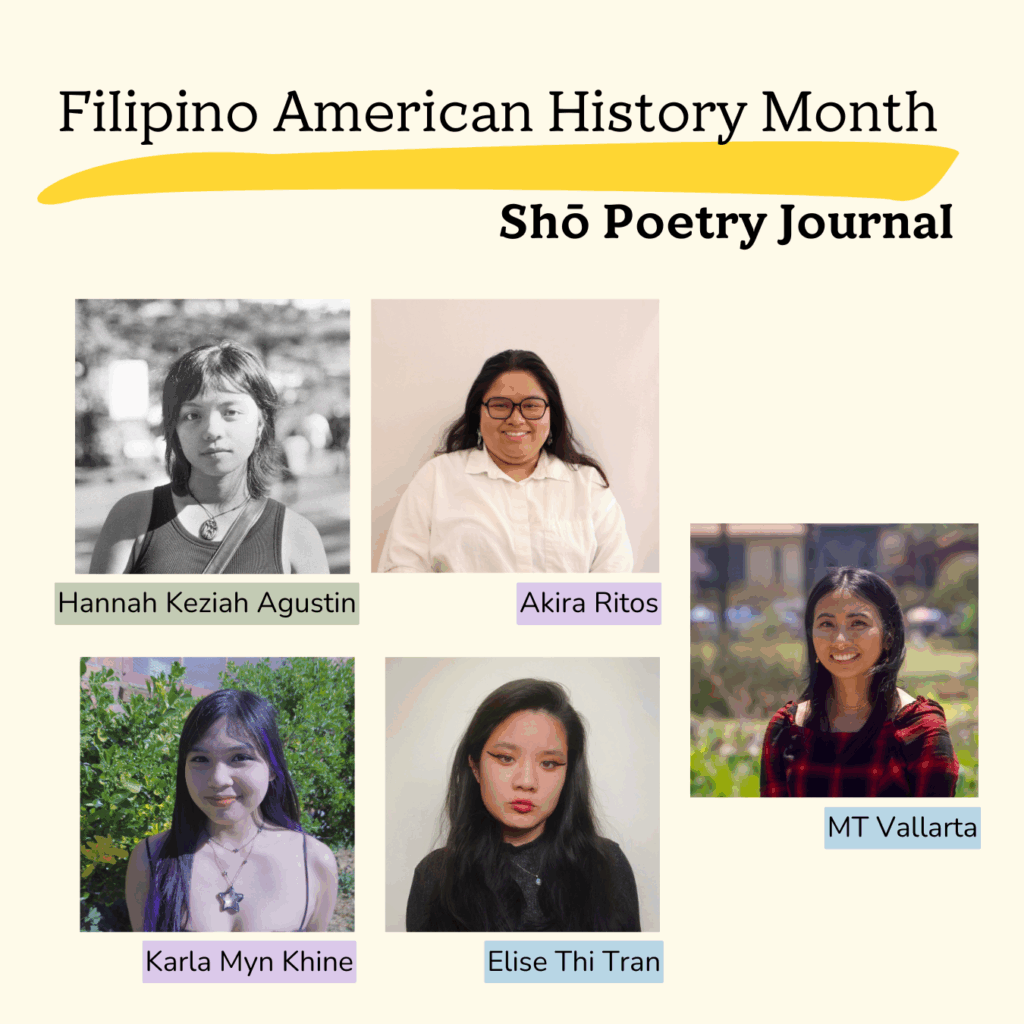
To celebrate National Filipino American History Month, we’ve curated this selection of poems by Hannah Keziah Agustin (Shō No. 7); Karla Myn Khine and Akira Ritos (Shō No. 5), and Elise Thi Tran and MT Vallarta (Shō No. 4).
“WHEN MY FATHER CAME TO AMERICA, HE BLEACHED OUT HIS TONGUE” by Hannah Keziah Agustin
WHEN MY FATHER CAME TO AMERICA, HE BLEACHED OUT HIS TONGUE
My father cleans apartments for a living. The archive says white men can’t do the work as well as these whort Filipinos who can get down on their hands and knees. Five days a week, he packs his lunch to work and wears the same jacket stained with household liquid bleach. All day long stooping over. A native will live upon a few cents worth of food a day and count himself as well. In this respect, the native Filipinos are much like the Chinese coolies. On what a person accustomed to a civilized diet would regard as starvation rations. He feasts on half a sausage, rice. The cornfields in Wisconsin remind him of the long stretches of farmland. In the Philippines, rice is the principal article of diet, and the cultivated fields where it is grown present many picturesque scenes. My father’s job does not require him to speak. It is the same with all other forms of industry. My father is paid ten dollars an hour. The natives will toil all day long for a few centavos or loiter around a whole day on the street corners in the hope of making a peseta carrying some burden, while their fields, embracing the richest and most productive land, on the islands, go untilled. He swears to leave America after five years. Take it or leave it. But, after all, it is not really necessary to pay any great attention to the cultivation of the soil if one is content to live in accordance with the Filipino's primitive ideas of life. He’s been here for a year. In his native condition, the needs of the Filipino are few and simple. He believes in God. Careless alike of the past and future, he lives from hand to mouth, letting each day take care of itself. He reads Matthew 6:34, “Tomorrow will worry about itself.” My father knows the fruitful soil, almost without tillage, will yield to him the very conditions of his existence. The Filipino feeds as he goes, like an animal.
About this poem: I wrote this poem by immersing myself in archival material about the American colonial period in the Philippines from 1898 to 1946, and interweaving it with stories of my father’s labor. Although the occupation has ended, America continues to militarize my country and back the bureaucrat.
“WHEN MY FATHER CAME TO AMERICA, HE BLEACHED OUT HIS TONGUE” appeared in Shō No. 7.
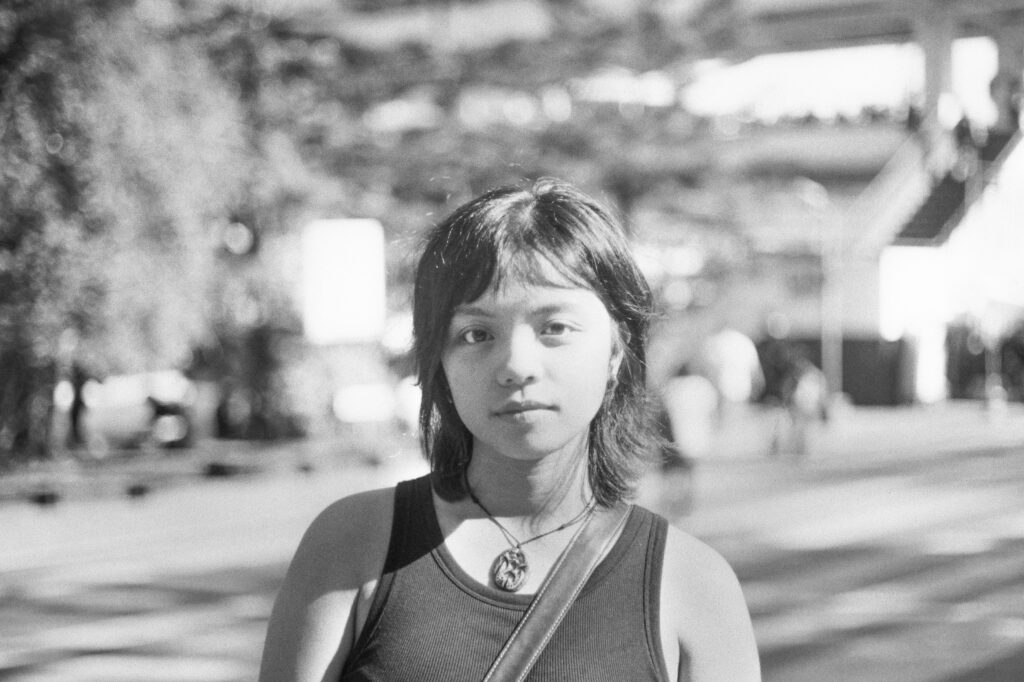
Hannah Keziah Agustin is from the urban sprawl of Metro Manila, and currently based in New York City.
“Pag-Pag” by Akira Ritos
Even though my family are Catholics, the ones who beg for forgiveness after accidentally eating meat on Friday, we are spiritual. Superstitious.
“Pag-Pag” appeared in Shō No. 5.
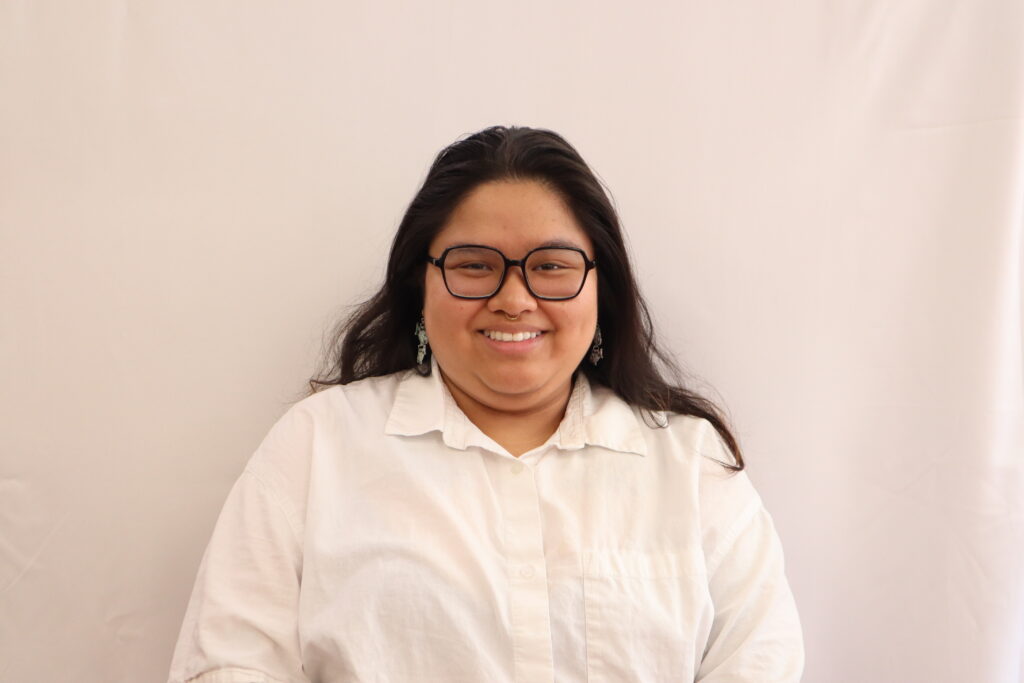
Akira Ritos (they/them) is a lesbian Filipino-American and author of the poetry chapbook ALL OF THEM ALL OF THEM from fifth wheel press. They were previously published in Shō Poetry Journal, the anthology We The Gathered Heat from HayMarket Books, Marias At Sampaguitas, Yuzu Press, the lickety split, and more. Currently, they work as an educator and dream of writing the best lesbian vampire novel ever. Find them on Twitter and Instagram @adotocean.
“Neophobia” by Karla Myn Khine
Sometimes ‘new’
doesn’t always mean better. New can mean
worse dressed in a fancy hat. New can mean
void of memories, of a crash course in history.
About This Poem: I recall being asked by a friend what my deepest fear was. I had never really thought about it before then, but as I thought more thoroughly about it, I soon realized that I was afraid of new. I’ve never liked making big decisions, the ones that you can’t come back from, or at least ones that are difficult to come back from–where to go to college, what car to buy, that kind of stuff. At the time of writing this poem, I was in the middle of something new. I had just moved to California from Texas, which was the biggest decision I had ever made in my life. I didn’t know anyone or the area. So I spent a lot of time just by myself, but in spite of that, I was hopeful. Potential was everywhere for me, especially on the blank page. This poem is about that process and learning to embrace newness and the inevitable change it brings with open arms.
“Neophobia” appeared in Shō No. 5.
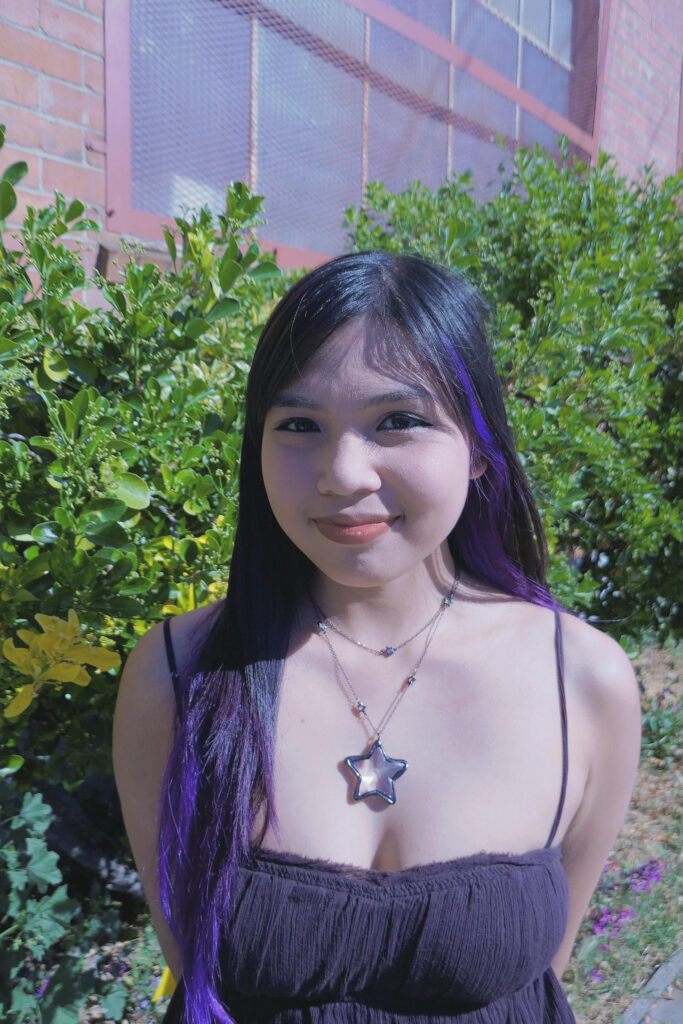
Karla Myn Khine is a writer from South Texas, currently residing in Oakland. She is a graduate from San Francisco State’s MFA program, where she was a recipient of an Academy of American Poets University Award, the Daniel Langton Poetry Prize, and a Marcus Graduate Scholar. Her work has appeared or is forthcoming in Poetry Online, Driftwood Press, The Pinch, Poets.org, Shō Poetry Journal, and ANMLY. You can find her on Twitter, Instagram, and Substack @bunrealism and more of her writing at karlakhine.com.
“Obituary for My Grandmother’s Name” and “Salt” by Elise Thi Tran
My grandmother’s name—died on March 30th, 2019, over the phone. Laid to rest, mispronounced, in my mouth.
After two years spent wasting / on that island in the Anambas / my father’s family settles in a city / seven hundred sixteen miles / from the nearest coast / Forty-eight years later we put that failed war / behind us /
“Obituary for My Grandmother’s Name” and “Salt” appeared in Shō No. 4.
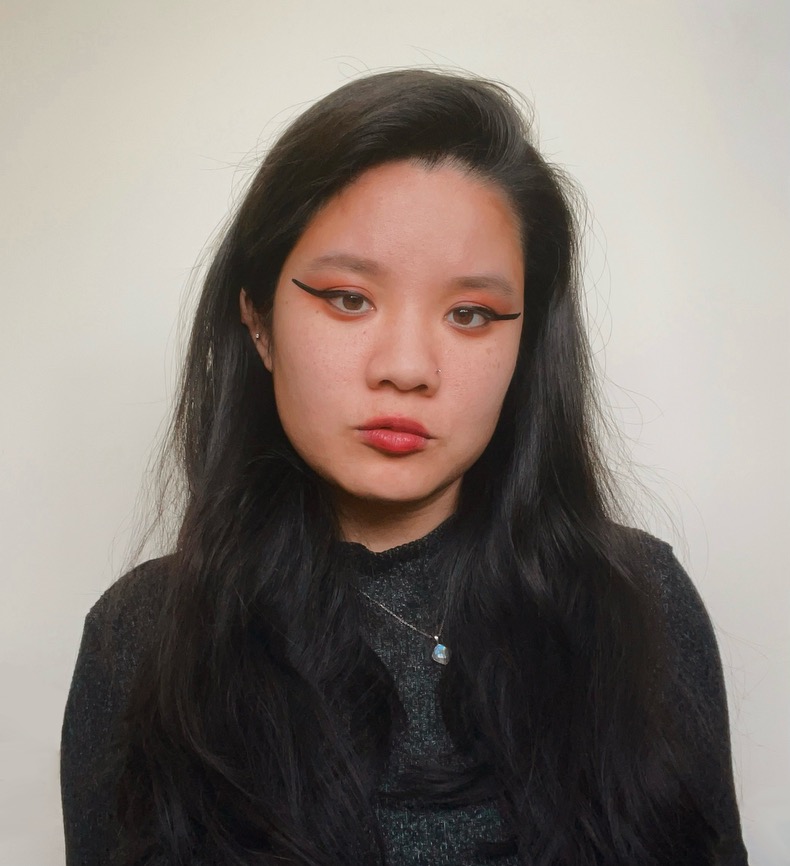
Elise Thi Tran is a writer, poet, and multimedia artist. Her work appears or is forthcoming in APARTMENT, Blue Bag Press, Blackbird, Diode, Copper Nickel, The Kenyon Review, Salt Hill, and elsewhere. Find Elise on Instagram @elise.tran and selections of her work at linktr.ee/eliseth
“Neighborhood Tour” by MT Vallarta
Neighborhood Tour
My mother points out all the beautiful things:
a butterfly and its pearled wings,
a green hummingbird poking its snout into a silky
violet, a chubby Filipina baby whose laughter
echoes like the peal of Christmas bells.
As she smiles through my tears,
my last sob plummeting into my stomach’s
well, I cannot tell her that the butterfly has been
hung and nailed to a wall. The hummingbird is a
ghost, the violets bulldozed for highrises.
The baby grows up to be a girl and the girl lies
alone on Christmas Eve with a 104 degree fever
while her mother refuses to hear her.
I am sorry I cannot see the beautiful things.
I swallow the pearls, disappear with the
hummingbird, and let the girl be swaddled
by the well.
“Neighborhood Tour” appeared in Shō No. 4.
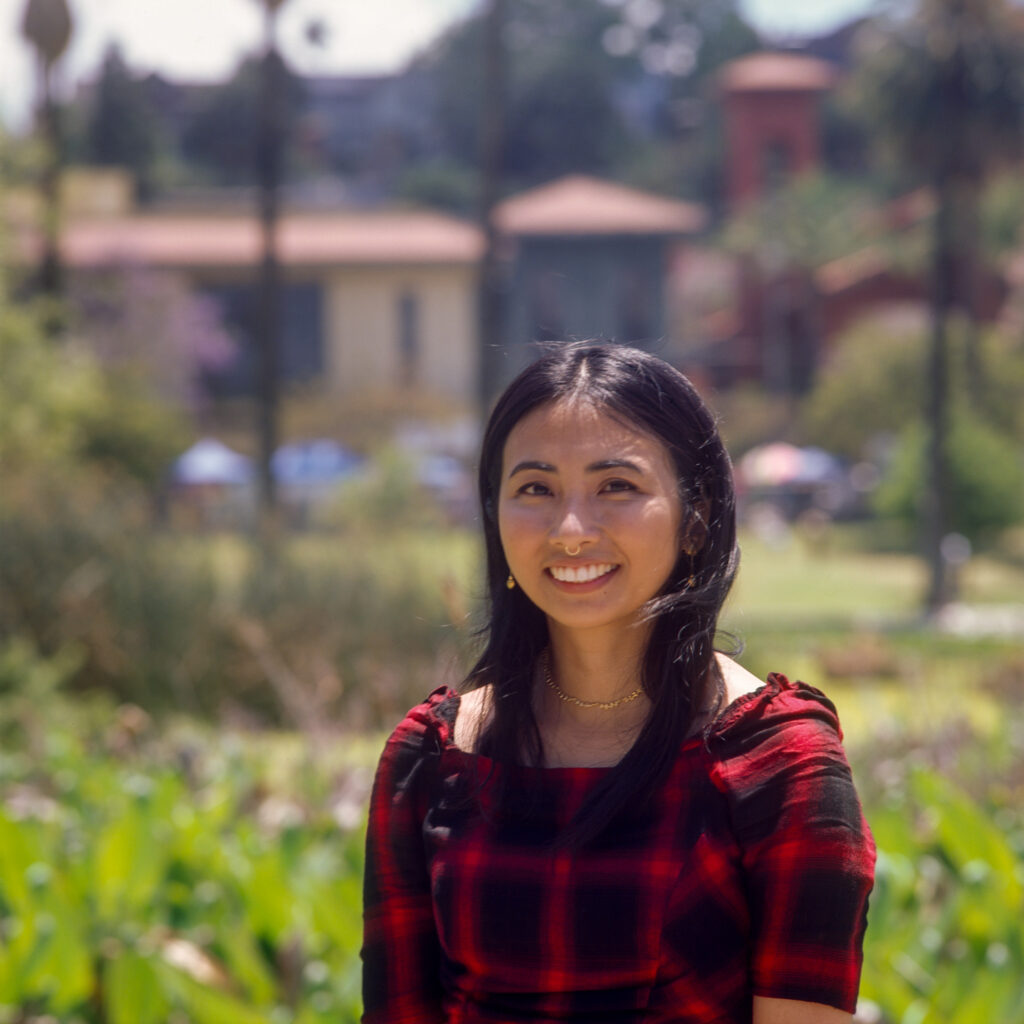
MT Vallarta (they/them) is a poet and Assistant Professor of Ethnic Studies at California Polytechnic State University, San Luis Obispo. They are the author of the poetry collection, What You Refuse to Remember, winner of the 2022 Small Harbor Publishing Laureate Prize. A Kundíman fellow, Roots. Wounds. Words. fellow, and Pushcart Prize nominee, their poetry and creative nonfiction can be found in The Selkie, Shō Poetry Journal, Madwomen in the Attic, Nat. Brut, Apogee, and others. They live on Northern Chumash lands, in Grover Beach, CA.